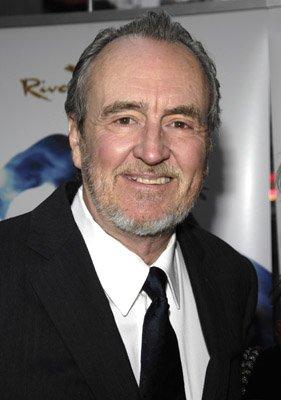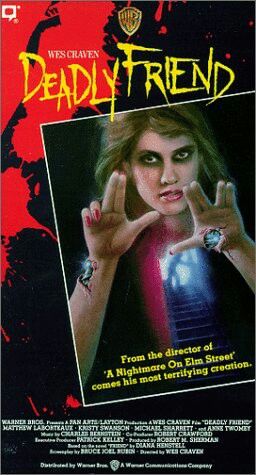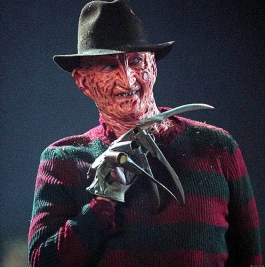Mondays are hard enough, but I woke up on this one to devastating news. Wes Craven has died.
It doesn't seem real. Wes has been around so long. He's always been there in my life, creating movies.
 No, I never met the man, but that does not mean I do not feel a tremendous sense of loss. Wes Craven, along with people like George Romero, John Carpenter, and Tobe Hooper, were like Gods on Olympus to me. Unlike mythological Gods, these guys were always fallible. They all made masterpieces, but they also made some real duds.
No, I never met the man, but that does not mean I do not feel a tremendous sense of loss. Wes Craven, along with people like George Romero, John Carpenter, and Tobe Hooper, were like Gods on Olympus to me. Unlike mythological Gods, these guys were always fallible. They all made masterpieces, but they also made some real duds.
Wes was certainly no exception, but how many directors can claim to have made three genre milestones?
Last House on the Left was a huge success on the drive-in, grindhouse, and midnight movie circuits when I was young. Too young to have seen it until much later, but I well remember hearing the radio spots. They alone were enough to scare the crap out of me.
I eventually did see Last House on the Left at a midnight show. As well as numerous times on home video. I am a genuine horror fan, after all. I never thought that it was a particularly good movie, but as a study in sadism, it is certainly effective. The manic performance of David Hess is what mostly set Last House apart from its competition.
Yet it struck a chord with people, and it did so outside the small horror community. That's real genre success.
Then there was the nearly unparalleled popularity of A Nightmare on Elm Street and its illustrious villain, Freddy Krueger. Moviegoers of all kinds responded to the story of a badly scarred child murderer who invaded the dreams of teenagers to torment and kill them.
People loved Freddy, and while the sequels became less frightening and more comical, they remained showcases of conventional effects. Freddy's grinning mug adorned many a cover of Fangoria magazine.
It was a great time to be a young horror fan. The genre was healthy, and Freddy led the pack of movies coming out. At least for a while. Time passed, and Freddy fell out of favor as the nineties commenced.
Horror was not all that healthy in the early to mid-90's, but in 1996 Craven made it hip again. Directing from a Kevin Williamson script, Wes Craven's Scream was a meta horror movie that was well aware of the genre's history, and it presented a new kind of slasher for a new generation. And it worked. Scream was produced for a modest sum, and it brought in mega-bucks for Dimension Films.
Not everyone was enthusiastic. Horror fans were starting to become cynical when Scream was released, and many felt that it was an ultimate sellout. Genre journalist Chas. Balun railed against it, and many fans vociferously despised the movie.
I don't know. Maybe Scream was too slick. Or maybe they resented that it was embraced by so many young people who knew nothing of horror. Maybe using recognizable TV stars in key roles had a lot to do with it.
No matter. Scream was a resounding success and it spawned three sequels and a television series. It is my favorite Wes Craven movie.
I have a very soft spot for his 1986 movie, Deadly Friend. It was a critical and financial flop, but I love this idiotic little messterpiece. I was such a rabidly goofball fan at the time, and my best friend and I saw it at a drive-in theater. under the stars on a cool night, sipping beers and watching the movie. How could one not enjoy it? It was a more innocent time, my friends.
Wes Craven did some movies that were obvious jobs-for-hire. Swamp Thing, Vampire in Brooklyn, and the Scream sequels come immediately to mind. Some might make an accusing shout of "SELLOUT!", but I never begrudged anyone making a living.
A few were real disasters, such as Shocker. Not that I didn't enjoy it. It's easy to dismiss Shocker as a sad attempt to create another lucrative genre franchise, but I had fun with it. Shocker is such a gonzo bugfuck experience. Like an acid trip gone bad.
The Serpent and the Rainbow is an underrated gem.
I don't fault Craven for his misfires. Film is such a collaborative medium, and the bean-counters are constantly trying to second guess the creative forces in most productions. Then guess who gets the blame when one fails miserably?
At his best, Wes Craven was one of the most ambitious directors in the horror movie realm. He dealt with archetypes of the subconscious and psychological motivations in his more personal movies. The man was intelligent, incredibly well-spoken, and while serious about his craft, Craven knew that there could be fun and laughter in being scared.
Goodbye, Wes. You helped shape the horror genre, you invaded all of our dreams, you provoked us to scream with delight, and you made us think while you did it. Thanks.

It doesn't seem real. Wes has been around so long. He's always been there in my life, creating movies.
 No, I never met the man, but that does not mean I do not feel a tremendous sense of loss. Wes Craven, along with people like George Romero, John Carpenter, and Tobe Hooper, were like Gods on Olympus to me. Unlike mythological Gods, these guys were always fallible. They all made masterpieces, but they also made some real duds.
No, I never met the man, but that does not mean I do not feel a tremendous sense of loss. Wes Craven, along with people like George Romero, John Carpenter, and Tobe Hooper, were like Gods on Olympus to me. Unlike mythological Gods, these guys were always fallible. They all made masterpieces, but they also made some real duds.Wes was certainly no exception, but how many directors can claim to have made three genre milestones?
Last House on the Left was a huge success on the drive-in, grindhouse, and midnight movie circuits when I was young. Too young to have seen it until much later, but I well remember hearing the radio spots. They alone were enough to scare the crap out of me.
I eventually did see Last House on the Left at a midnight show. As well as numerous times on home video. I am a genuine horror fan, after all. I never thought that it was a particularly good movie, but as a study in sadism, it is certainly effective. The manic performance of David Hess is what mostly set Last House apart from its competition.
Yet it struck a chord with people, and it did so outside the small horror community. That's real genre success.
Then there was the nearly unparalleled popularity of A Nightmare on Elm Street and its illustrious villain, Freddy Krueger. Moviegoers of all kinds responded to the story of a badly scarred child murderer who invaded the dreams of teenagers to torment and kill them.
People loved Freddy, and while the sequels became less frightening and more comical, they remained showcases of conventional effects. Freddy's grinning mug adorned many a cover of Fangoria magazine.
It was a great time to be a young horror fan. The genre was healthy, and Freddy led the pack of movies coming out. At least for a while. Time passed, and Freddy fell out of favor as the nineties commenced.
Horror was not all that healthy in the early to mid-90's, but in 1996 Craven made it hip again. Directing from a Kevin Williamson script, Wes Craven's Scream was a meta horror movie that was well aware of the genre's history, and it presented a new kind of slasher for a new generation. And it worked. Scream was produced for a modest sum, and it brought in mega-bucks for Dimension Films.
Not everyone was enthusiastic. Horror fans were starting to become cynical when Scream was released, and many felt that it was an ultimate sellout. Genre journalist Chas. Balun railed against it, and many fans vociferously despised the movie.
I don't know. Maybe Scream was too slick. Or maybe they resented that it was embraced by so many young people who knew nothing of horror. Maybe using recognizable TV stars in key roles had a lot to do with it.
No matter. Scream was a resounding success and it spawned three sequels and a television series. It is my favorite Wes Craven movie.
I have a very soft spot for his 1986 movie, Deadly Friend. It was a critical and financial flop, but I love this idiotic little messterpiece. I was such a rabidly goofball fan at the time, and my best friend and I saw it at a drive-in theater. under the stars on a cool night, sipping beers and watching the movie. How could one not enjoy it? It was a more innocent time, my friends.

Wes Craven did some movies that were obvious jobs-for-hire. Swamp Thing, Vampire in Brooklyn, and the Scream sequels come immediately to mind. Some might make an accusing shout of "SELLOUT!", but I never begrudged anyone making a living.
A few were real disasters, such as Shocker. Not that I didn't enjoy it. It's easy to dismiss Shocker as a sad attempt to create another lucrative genre franchise, but I had fun with it. Shocker is such a gonzo bugfuck experience. Like an acid trip gone bad.
The Serpent and the Rainbow is an underrated gem.
I don't fault Craven for his misfires. Film is such a collaborative medium, and the bean-counters are constantly trying to second guess the creative forces in most productions. Then guess who gets the blame when one fails miserably?
At his best, Wes Craven was one of the most ambitious directors in the horror movie realm. He dealt with archetypes of the subconscious and psychological motivations in his more personal movies. The man was intelligent, incredibly well-spoken, and while serious about his craft, Craven knew that there could be fun and laughter in being scared.
Goodbye, Wes. You helped shape the horror genre, you invaded all of our dreams, you provoked us to scream with delight, and you made us think while you did it. Thanks.

The author does not allow comments to this entry
No comments